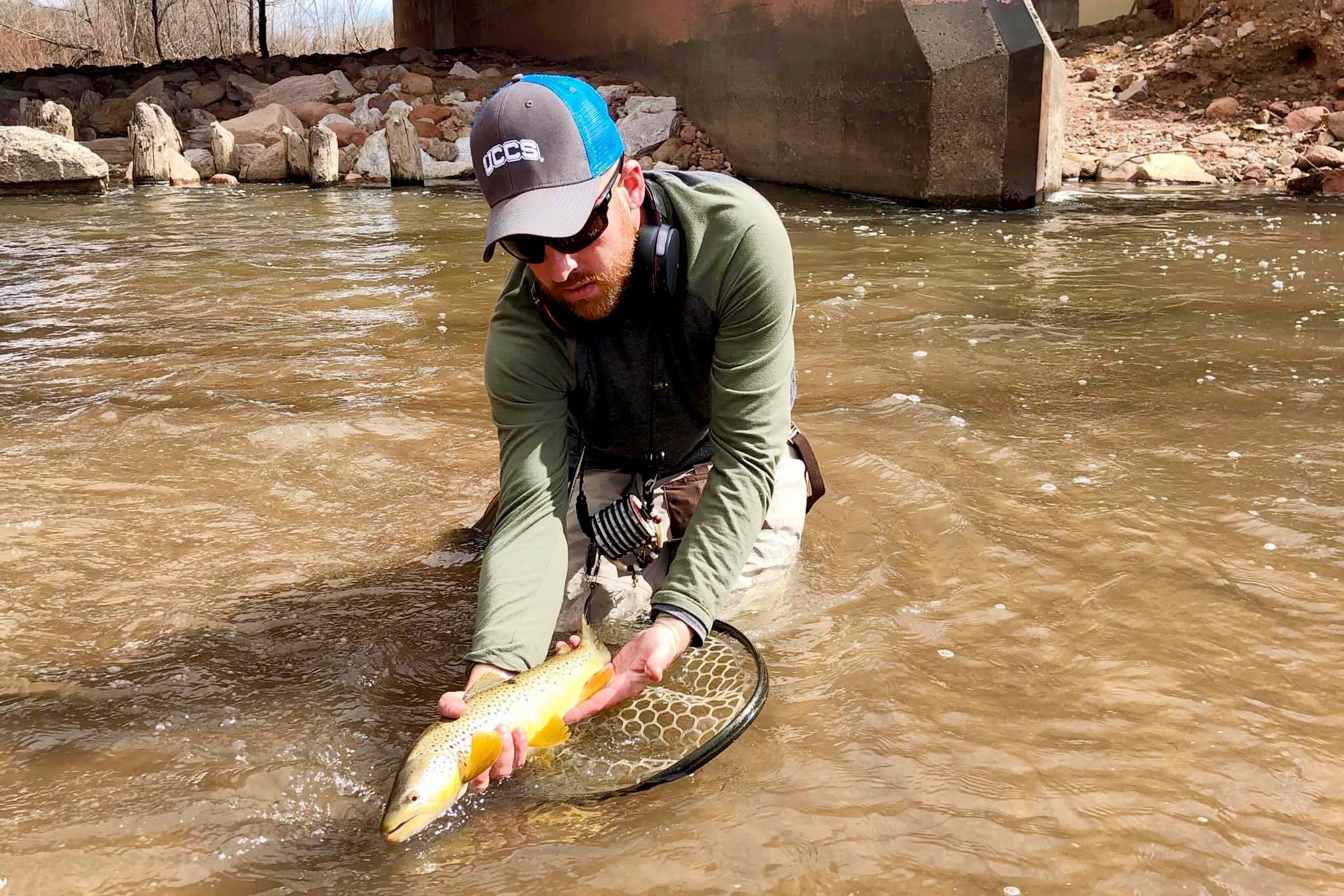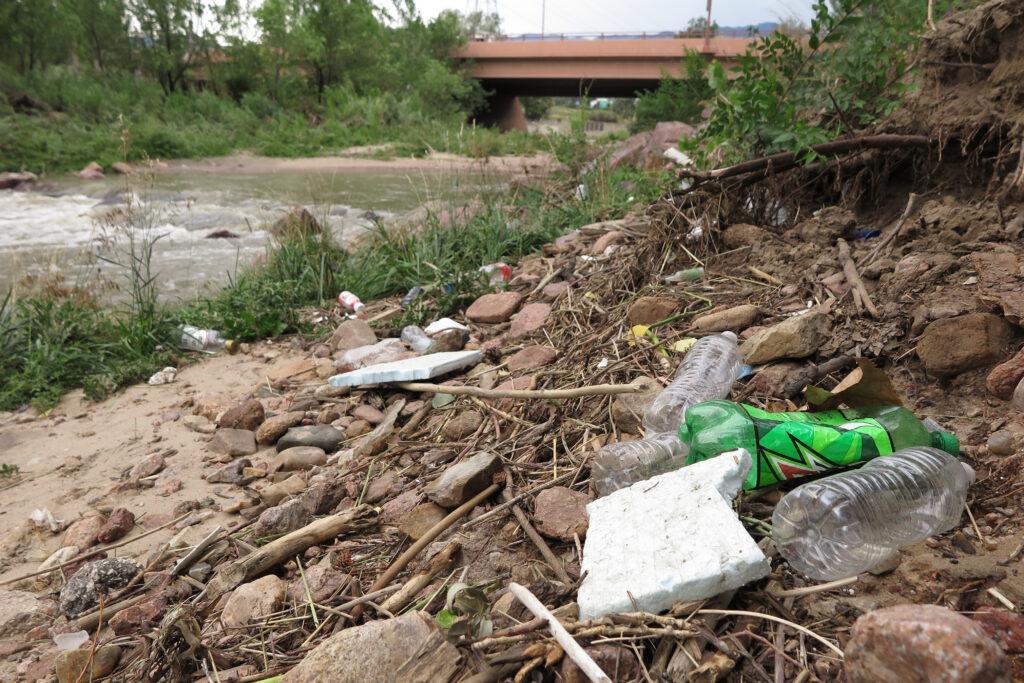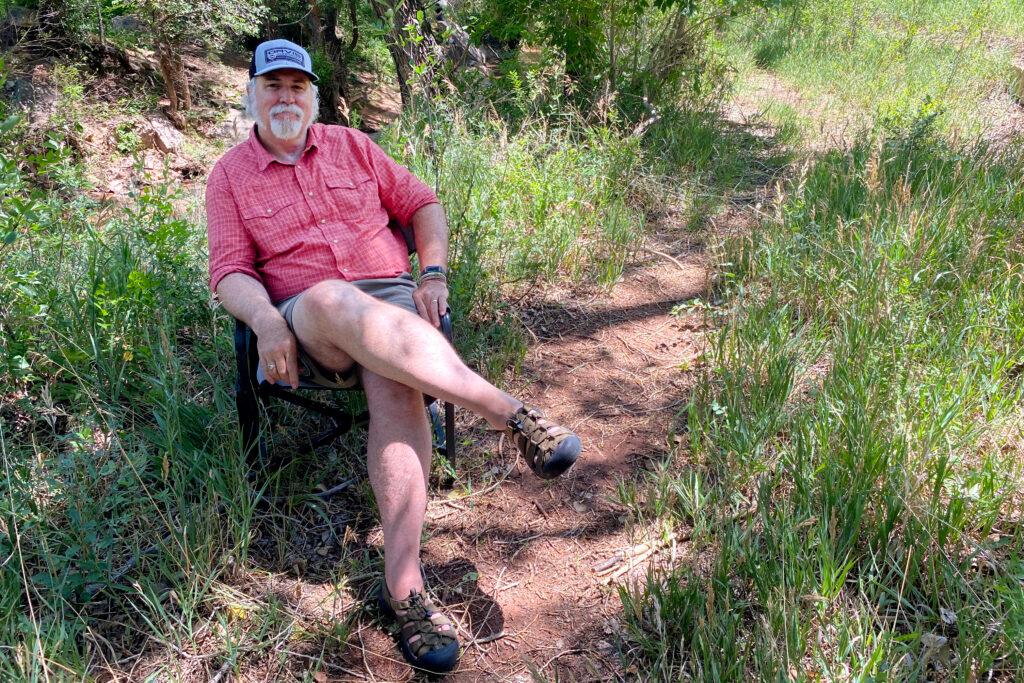
When Richard Mulledy was growing up in Colorado Springs, there was no trail running along the city’s Fountain Creek. Who would have wanted to walk along the pollution-laden waterway? It was little more than an overgrown ditch for the region’s erratic and sometimes massive flash floods.
Decades later, a lot has changed.
In cities like Denver and Pueblo, urban waterways have become recreation resources. But in the Springs, Fountain Creek still struggles to shake its reputation as a contaminated dumping ground.
It’s the kind of place where people think, “if you catch a fish and it’s got three eyes looking at you — that kind of a reputation, yeah,” acknowledges Mulledy, who now manages the city’s stormwater department.
Memories of a ruptured sewer line that sent a torrent of raw sewage into the creek in the late 1990s still linger. The city is mired in a years-long ongoing lawsuit concerning pollution and creek sediment brought by a group of plaintiffs that includes the Environmental Protection Agency and multiple downstream counties.

The trash-strewn banks of today don’t help the image either; nor does the looming silhouette of the Martin Drake power plant near at hand. But in spite of all that, Mulledy said Fountain Creek is turning a corner in the public’s mind.
“In the last four years, we’ve made massive progress,” he said, “more progress in that relationship and the city’s attention to Fountain Creek than in the last 50 years.”
Hundreds of millions of dollars have been spent on addressing water quality concerns and miles of creekside trails have been constructed in recent years. These are just the latest indications that the state’s second-largest city is serious about catching up to the amenity-focused approach other Colorado cities have taken to their once-industrial waterways.
And surprising glimmers of hope are already swimming in the creek itself: normal, non-radioactive, two-eyed trout — and hefty ones at that.
“I’ve caught rainbow trout up to 18 inches down by Walmart and brown trout bigger than that,” said local fly fisherman Alan Peak.
Peak started posting online about his catches a couple of years ago, pulling impressive specimens from stretches of the creek many anglers assumed had to be toxic and barren fish graveyards. His success has garnered the attention of state lawmakers and environmental organizations. A whole community of urban anglers now post photos of their Fountain Creek fish to a Facebook group.
Some businesses also see opportunity in the creek’s budding restoration.
Angler’s Covey, a local fly fishing shop near Old Colorado City, has bordered Fountain Creek since 2004, and owner David Leinweber’s long-held dream of making use of that proximity may finally move closer to reality.
He recently signed a five-year lease with the city for the stretch of the creek behind his property. He plans to fence in the area, improve the trout habitat and hold casting classes down on the water, likely by next summer.

The fences bring up a key issue separating the creek’s present reality from what the city’s plans for its future. Fountain Creek has long been a haven for the city’s homeless community, who camp among the willows and cottonwood trees that line the banks, often in violation of a city ban on campsites within 100 feet of waterways.
The stretch behind Angler’s Covey serves as an unofficial pass-through between campsites. Leinweber argues that blocking off the several hundred feet behind his business won’t cause an undue burden for the city’s very poor and he noted non-customers will still have access to the water.
“It will always be open to the public, you just would need to check in with us so we know you’re down there,” he said.
On the city’s south side, Dorchester Park provides one of the more secluded camping options for those experiencing homelessness. It also holds some of Fountain Creek’s best trout habitat. Alan Peak stops by every so often to tidy up the area, filling up large black garbage bags with trash.
He said he would never eat the fish he catches from Fountain Creek; he releases them all. Outside of that, he’s not really worried about water pollution. He just washes up after his visits.
“It’s not like all our mountain streams are perfect and clean. So, it’s kind of common sense everywhere you go,” he said.
Certain stretches of the creek do still test above the state’s minimum standard for e-coli contamination at times — an unhappy distinction it shares with about 100 other Colorado waterways. But the city argues, broadly speaking, the stream is now safe.
Peak is not fishing Fountain Creek right now — and he’s asked his growing community of local anglers not to either. The high temperatures of midsummer are stressful for the trout, which means they can suffer more when caught.
He’s looking to protect the fledgling and fragile population here and grow it for the future.









